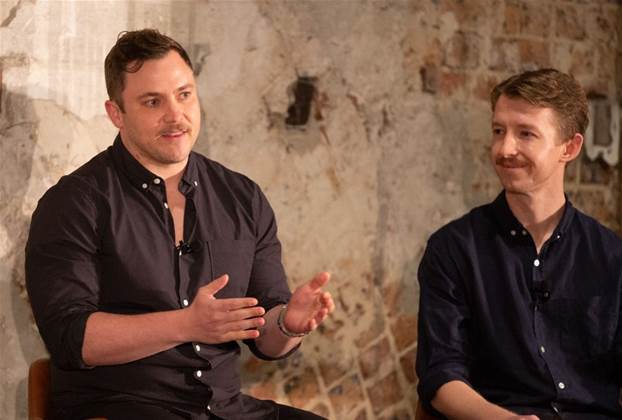Web3 will enable new modes of monetisation for the creator economy according to Michael Stocks, VP strategy and operations at Linktree and James Rollin, head of marketing at Squarespace.
Stocks and Rollin spoke on a panel at Stripe’s recent Creator Economy event in Sydney, and discussed the rapid evolution of the creator economy as the internet undergoes its third iteration.

Rollin defined a creator as “someone whose personality is their brand and who monetises their passion.”
According to Linktree’s Stocks, the creator economy has seen the rise of the creative middle class, who are yet to have the reach of famous influencers and are unable to monetise to the point of creating content full time.
“Monetisation is a really key piece to this and we have to find better ways for the creative middle class to monetise. And I think it's really clear that the creator economy will only succeed if we find a way for them to do that,” said Stocks.
“I think there is a path in Web3 that we’re really interested in as a platform. Not the dodgy crypto side, but we think a lot about the tokenisation of creatives.”
Stocks highlighted creative tokenisation as the ability to invest in the future earning potential of a creator, just as VC funds invest in start-ups.
“You look at college athletes in the US historically who haven't been able to monetise at all. Recently there were some legal changes around name, image and likeness, where you can't be paid for playing the sport — bizarre — but, you can earn an income based on your name, your image or your likeness. And we're already seeing athletes in that space become more famous than the teams that they are playing for,” he said.
“I think it's going to be a really exciting opportunity for a lot of creators to receive the funding for the content that they want to create and receive the backing from their audience and their fans. Very, very early days, but I think that's something that we will see a lot more of in the future.”
Linktree recently developed a new ‘link-in-bio’ category allowing users to showcase, sell and lock NFTs, in partnership with the world’s largest NFT marketplace OpenSea.
Stocks told Digital Nation Australia, “What I think is really impactful for creators, and to the point we were talking about before about tokenisation, is the idea that you can gain content behind links that are locked by whether you have a particular token or not.
“The idea that you can have an NFT that will allow you access into a particular community, allow you access to content that only other token holders have access to. So, I think that's where it gets really exciting.”
According to Squarespace’s Rollin, it may not necessarily be in the form of crypto or even NFTs.
“Some will work and some won’t. But the underlying blockchain technology does present an incredible opportunity for the disintermediation of the incumbent gatekeepers and to reallocate true ownership back to the creator, rather than having it live and be owned and be subject to the terms and the rules of engagement on the platform that they're currently using to publish,” said Rollin.
“If you take that to the nth degree, if we were able to tokenise membership and subscription and people buying into even a share of the equity in a creative person, you can see a world where that tokenisation is actually honoured across all platforms.”


_(23).jpg&h=140&w=231&c=1&s=0)
.png&h=140&w=231&c=1&s=0)







 iTnews Executive Retreat - Security Leaders Edition
iTnews Executive Retreat - Security Leaders Edition
 iTnews Benchmark Awards 2026
iTnews Benchmark Awards 2026
 iTnews Cloud Covered Breakfast Summit
iTnews Cloud Covered Breakfast Summit












_(1).jpg&h=140&w=231&c=1&s=0)



